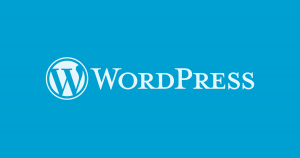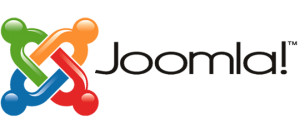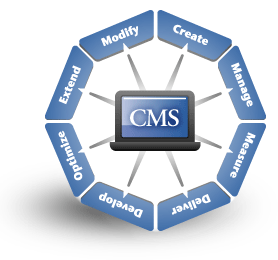What is CMS ?
Let’s start with the very basics. What is CMS? CMS stands for content management system, which is a software application or program that is used to, as the name suggests, manage digital content. It can also be used to create, publish, and archive this content. Essentially, it’s a software program that can help create and maintain a beautiful, well-designed website.
Benefits of a CMS
Picture this: you’re a business with a website. It has grown with your company, and you find yourself having trouble with keeping up with all of the maintenance that a website requires. Your content isn’t quite consistent and you’re having trouble remembering where everything is archived or how you’ve been indexing things. If this sounds like you, a CMS might just be the answer to all of your problems. You’ve taken the first step by asking “what is CMS”, now see why you should use one.
There are a wide range of benefits that can be gained from using a CMS. Implementing a content management system can help improve site navigation, streamline the process of creating content, and give a great sense of consistency, among other things. The functionality of a CMS can fall under the umbrella of creating content, managing content, publishing content, and presenting content.
Creating Content
A content management system makes it easy for the non-tech savvy to create content for their website. This streamlines the content creation process, since anyone can use the CMS to update the website. Relying on a single person to run the entire website isn’t practical, and a CMS helps ease that pressure. Website content creation is achievable for everyone once you have a content management system in place, making it the perfect solution for a strapped workplace.
Managing Content
So you’ve streamlined the content creation process, but now it’s a matter of actually getting the content up to snuff for the website. A CMS can help manage this content, making sure that it goes through all the necessary steps before being published. This could include editing and managerial approval, in order to make sure that the content is the best possible version before being published. The system can help keep everything in order to ensure that nothing gets lost in the shuffle, making everyone’s work process all the easier.
Published Content
You’ve got your perfected content, now it’s time to publish it to the website. A CMS allows web designers to specify how they’d like each page to look, and then the CMS will automate these pages each time a new one is published. This allows you to customise your own website without having to worry about replicating your web design each and every time you create new content.
Presenting Content
Implementing a CMS can help improve the navigation of your website, making for a more pleasant experience for site visitors. You can also employ revision features that allow you to edit content once it has already been published, helping ensure that content can be kept updated and fresh. The CMS will also archive content for you, so that you can better keep track of what’s going on the website and where and how to present it.
How it Works
Now that we’ve covered both what is CMS and all of the reasons a CMS is beneficial, let’s get down to how it actually works. With a traditional site, like one built in HTML or Flash, files must be downloaded from the web server, updated and changed, then re-uploaded to the server. Not only is this time-consuming, it also has a high risk for errors, as these changes can damage the code of the files and cause dead links or error pages.
With a CMS, you can make changes in real-time on your web browser, cutting out the need for downloads and uploads. It also allows you to immediately see how the website will look after the changes are made, so any mistakes can be rectified right away. You can also set your CMS to save older versions of your website, so if you do make a mistake, you don’t have to panic. A CMS can make running your website easier, more time-effective, and help produce a better overall site.
What CMS is Right for You?
You’ve asked yourself “What is CMS?” Now it’s time to ask which one you should use. There are many different types of content management systems out there. With all of these options, it can be hard to figure out what system is right for you and your needs. Each system has various benefits, so it ultimately comes down to what you’re looking for in a CMS.
Drupal

WordPress

Joomla!

What CMS you choose to use ultimately comes down to what makes sense for your business. Ask yourself some key questions like:
- How scaleable do I need the website to be?
- Who will be building the website? Will they need to know code?
- How much flexibility do I need or want?
- What extensions or add-ons might I need? Will I be willing to pay for them?
Once you know these answers, you can start looking for the CMS that’s right for your business.
Web Developers and CMS
Though you may think web developers and content management systems would be at odds, that couldn’t be further from the truth. Many web developers, including Whitehat, use content management systems in order to build websites for their clients that they will later be able to go in and update on their own. Additionally, some web developers find it helpful to employ an e-commerce CMS to help with e-commerce sites that have to support a lot of products for sale. There’s also the added benefit of being part of a development community, which can serve to help create and shape ideas. Employing a web developer to help you implement a content management system can be extremely beneficial, and could ultimately make a major difference in the presentation and performance of your website. It’s not enough to ask what is CMS and stop at that. Go out and start using your knowledge!
Recent Posts
Get your FREE 30 minute Digital Marketing Consultation.
Learn how you can grow your business by unlocking the full potential of Digital Marketing.






